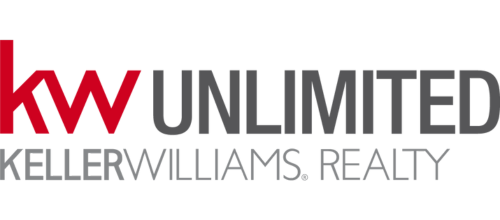
In today’s economy, owning a home is still the American dream, and for first-time home buyers, it can seem overwhelming. But don’t fall into the rental trap of paying someone else’s mortgage when you could be building your own equity. In this blog post, we’ll go into detail about the rental trap and how you can get away from it.
What is Rental Trap?
The rental trap refers to a situation where individuals or families find themselves stuck in a continuous cycle of renting without being able to transition into homeownership. It often occurs when high rents and living expenses make it challenging for renters to save up enough money for a down payment on a home, leading them to remain dependent on renting.
This relentless cycle can be restrictive, as rising rental costs may outpace income growth, making it increasingly difficult for individuals to accumulate the necessary funds for purchasing a property. Additionally, the absence of homeownership can result in missed wealth-building opportunities through equity accumulation and increasing property values over time.
Moreover, those caught in the rental trap may face limited control over their living space due to lease agreements and may experience less stability as they are subject to potential rent increases or eviction. This lack of housing security further adds pressure and disrupts long-term financial planning.
Breaking free from the rental trap necessitates strategic financial planning and potentially exploring alternative housing options such as shared ownership or affordable housing programs. Creating a solid savings plan, seeking professional advice about loans or mortgage options, and considering ways to increase one’s income are all steps that can help navigate this challenge towards achieving homeownership.
How To Avoid the Rental Trap

Here are some tips to help you find the perfect home without the added stress of wondering how to purchase it.
First and foremost, it’s important to understand your current financial situation. This means taking a close look at your credit score, income, expenses, and debt-to-income ratio. Being honest with yourself about what you can afford will help you avoid the potential disappointment of falling in love with a house that’s just not in your budget.
Next, take the time to research the various home loan options available to you. You might be surprised to find that there are many different types of loans out there, including government-backed options like FHA or VA loans. Consider working with a reputable mortgage broker who can help you navigate the lending landscape and find the best option for your specific needs.
When it comes to actually finding a home, it’s important to be patient and realistic. While it might be tempting to jump on the first house you see that fits your budget, remember that this is a major investment that you’ll be living with for years to come. Take the time to tour multiple properties, ask the right questions, and really think about things like location, neighborhood, and overall condition of the home.
One way to reduce stress in the buying process is by getting pre-approved for a mortgage. This process can give you a clear understanding of what you can afford, and it sends a signal to sellers that you’re serious about your search. Having a pre-approval in hand can also make your offers more attractive and help speed up the closing process.
Finally, don’t forget about the many different resources available to first-time home buyers. This might include programs offered by your state or local government, discounts on real estate agent fees, or even special financing options. Do your research and take advantage of these opportunities to make the process as smooth and stress-free as possible.
In conclusion, buying a home can be a daunting task, but it doesn’t have to be. By taking the time to plan, prepare, and research, first-time home buyers can find the perfect home without the added stress of worrying about how to finance it. Remember, this is a major investment that you’ll be living with for years to come, so take your time and make sure you find the right fit for your needs and budget. With a little patience and persistence, you can avoid the rental trap and finally achieve the dream of homeownership in 2023 and beyond.
What are the Advantages and Disadvantages of Renting?

Now that you are aware of what a rental trap is, here are some pros and cons of renting:
Advantages of Renting
1. Flexibility
Renting offers more flexibility compared to owning a property. It allows individuals to easily move and explore different locations, especially for those with temporary or uncertain job situations.
2. Lower upfront costs
Renting typically involves lower upfront costs compared to buying a property, as tenants are not responsible for down payments, closing costs, or maintenance expenses.
3. Limited financial responsibility
Unlike homeowners, renters do not have to worry about unexpected repairs and maintenance expenses that can be quite costly. The landlord is generally responsible for managing these issues.
4. Fewer responsibilities
Owning a property comes with multiple responsibilities such as lawn care, snow removal, and property taxes among others. When renting, these responsibilities usually fall on the landlord allowing the tenant more time and energy for other activities.
5. Access to amenities
Many rental properties offer access to various amenities such as swimming pools, gyms, parking spaces or laundry facilities which may otherwise be expensive if owned personally.
Disadvantages of Renting
1.Lack of long-term investment potential
Rent payments do not contribute towards building equity in a property like mortgage repayments do when owning a home – it essentially goes into someone else’s pocket without providing long-term benefits for the renter.
2. Limited control over living space
Since rented properties belong to landlords who maintain legal ownership rights; hence tenants often encounter limitations related to interior decorations or modifications they can make within their rented space based on their preferences.
3. Inability to build credit score through rent payments
While making regular rental payments reflects timely payment behavior but does not directly help improve one’s credit history unlike mortgage repayments which could contribute favorably towards one’s credit score leading up advantageous borrowing rates in future endeavors
4. Lack of stability
Rental terms are often limited by lease agreements which can result in instability due to either ending tenancies by landlords choosing not to renew existing contracts resulting need for tenant relocation or sudden termination by the landlord.
5. No potential for financial gain
Unlike homeowners who can potentially profit from selling their property at a higher price, renters do not have this opportunity as they do not have an ownership stake in the property.
Overall, renting offers flexibility and lower upfront costs but lacks long-term investment potential and control over living space compared to purchasing a home. The decision to rent or buy ultimately depends on individual circumstances and priorities.
7 Benefits of Owning a Home

1. Investment Potential
Owning a home allows you to build equity over time, providing potential financial gain when selling in the future.
2. Stability and Security
Having a place to call your own offers stability for yourself and your family. You have control over your living space, eliminating worries about rent increases or eviction.
3. Pride of Ownership
Owning a home gives you a sense of pride and accomplishment, allowing you to personalize and tailor it to reflect your unique style and taste.
4. Privacy and Freedom
Enjoy the privacy of owning your own space without having to share walls or common areas with neighbors as in rental properties.
5. Tax Benefits
Homeowners often benefit from tax deductions on mortgage interest payments, property taxes, and other eligible expenses – potentially lowering their overall tax liability.
6. Appreciation Potential
Real estate values historically tend to appreciate over time, providing homeowners with the opportunity for long-term wealth accumulation.
7. Customization Flexibility
Unlike rented accommodation where modifications are restricted, homeowners can renovate or upgrade their property as desired without seeking permission from landlords.
Frequently Asked Questions
What is the main reason to avoid renting to own?
Renting to own appears to be an attractive option for first-time home buyers, as it provides a way to begin the home-buying process without having to worry about a down payment or credit score. However, there are several reasons why renting to own may not be the best choice.
The first and most important reason to avoid renting to own is that it can be a costly option. A tenant may be required to pay a large down payment and/or a premium rental price, which can significantly increase the total cost of the home. Additionally, the tenant may not be able to negotiate a lower purchase price than what is listed in the contract, meaning they may end up paying more than the home is worth.
Another possible downside to renting to own is that the tenant may be responsible for certain maintenance and/or repairs on the property. The landlord may not be responsible for any of the repairs, leaving the tenant to pay for them out of pocket. This can add up quickly and can be a major financial burden.
Finally, renting to own may not be the best choice for first-time home buyers who are looking to purchase their first home quickly. The process of renting to own can be lengthy and it may take several months or even years before the tenant is able to purchase the property. This can be a major obstacle for those who are looking to buy a home quickly.
For these reasons, it is important for first-time home buyers to consider all of their options before deciding if renting to own is the best choice. While it may appear to be an attractive option, it can be a costly and potentially time-consuming process that may not be ideal for everyone.
Is owning a home a good investment?
When it comes to investing in real estate, many people tend to ponder the question: Is owning a home a good investment? The answer to this question is an emphatic yes! Owning a home can be a sound financial decision for many first-time home buyers.
First and foremost, owning a home provides a sense of stability and security. From knowing you have a place to call your own to the peace of mind that comes with owning a house, there are many advantages to owning a home. Additionally, homeowners are able to build equity in their homes as they make monthly mortgage payments. This equity can be accessed through a home equity loan or by refinancing the mortgage.
Another benefit of owning a home is the potential for appreciation. Over time, the value of a home can appreciate significantly, making a house a great long-term investment. In addition, homeowners can often make improvements to their homes, such as renovating the kitchen or adding an extra bedroom, to increase the value of the house.
Finally, homeowners can enjoy tax benefits when they own a home. Homeowners can deduct their mortgage interest payments and property taxes on their income tax returns, which can reduce the amount of taxes they owe.
For first-time home buyers, owning a home can be a great investment. Not only can homeowners build equity in their homes and enjoy a sense of security and stability, but they can also enjoy potential appreciation and tax benefits. Owning a home is a smart financial decision for many people, and first-time home buyers should consider it an option.
How do I stop renting?
For many first-time home buyers, the prospect of leaving the rental market can be intimidating. After all, purchasing a home is a big step. But there’s no need to worry—with a little preparation, transitioning from renting to owning a home can be a smooth and rewarding experience.
The first step to take when considering becoming a homeowner is to get your finances in order. This means thoroughly understanding your income and expenses, and making sure that you have a steady source of income to cover your mortgage payment and other costs of ownership. You should also save up enough for a down payment, as this will lower your monthly payments and interest rates. Don’t forget to factor in the costs of closing, such as home inspection and insurance fees.
Once you’ve got your finances in order, it’s time to start shopping for a home. Make sure to look at a variety of homes in different areas, as this will give you a better idea of what your options are. When you find a house you like, it’s important to get a thorough home inspection to ensure it is structurally sound and free of any issues.
Once you’ve found the home of your dreams, it’s time to make an offer. This is when you’ll need to decide how much you want to offer for the home and what type of financing you’ll need. You may also need to negotiate any repairs that the seller may need to make.
Finally, once the offer is accepted, it’s time to close on the home. This is when you’ll sign the closing documents, pay all the associated fees, and officially become a homeowner.
Conclusion
Becoming a homeowner can be a daunting task, but with the right preparation and a bit of knowledge, it can also be one of the most rewarding experiences of your life. So don’t be intimidated—with a little dedication and research, you can easily make the transition from renting to owning a home.
For more information on how to avoid the 2023 rental trap, schedule a consultation with Maurice Barnes.


